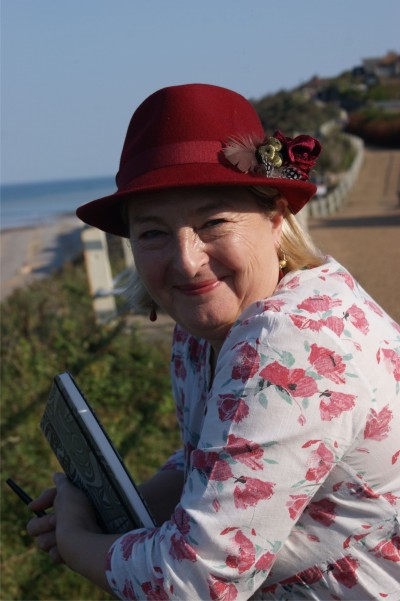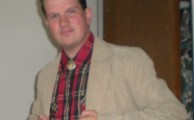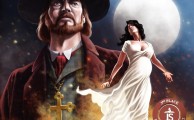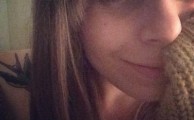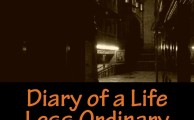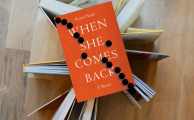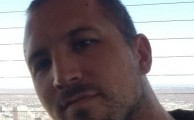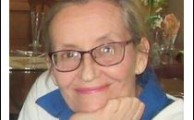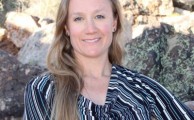Judi Daykin Interview
The Indie Book Butler Interview.
Indie Book Butler: Let’s start things off with an introduction. Tell us a little about yourself for those not already aware of you and your work.
Judi Daykin: Hello from a rather snowy North Norfolk and thank you for the invite. I’m Judi Daykin. I’ve been a working actor and theatre sound technician for many years. With my husband, I run a small rural touring theatre company called Broad Horizons. I graduated from the UEA MA in Creative Writing (Crime Fiction) in 2019, and my novel Under Violent Skies was published by Joffe Books in September 2020.
IBB: You’ve got twenty words to tempt us to read your book(s). What would you say?
JD: Rural beauty can conceal dreadful violence. Meet DS Sara Hirst tackling gritty crimes and prejudice in the Norfolk countryside.
IBB: Where do you like to write?
JD: I have turned our spare bedroom into a study. It’s only tiny, but I sit here, surrounded by my book collection, looking out over our garden and the fields beyond and procrastinate! I have an old broken-down caravan at the bottom of the garden for the summer, which I have turned into a hideaway. Crafting and hand-editing take place down there.
IBB: Is there anything you must have in order to write?
JD: I write on a PC, then print out the first draft which I then hand-edit and rewrite. (Sorry, I know it’s a lot of paper). I also have a demon which my lovely daughter Gwen designed – she’s a talented Computer Games designer, and the demon was part of her MA dissertation. It’s been printed out on a 3D printer. Called Doe-gorelle, he sits on top of my PC tower as a good luck charm for creative inspiration.
IBB: What books have influenced you most, both as a person and as an author?
JD: For my writing, early inspiration comes from Dorothy L. Sayers and Graham Greene. Val McDermid, Ian Rankin and Peter Robinson introduced me to the idea of series of police procedurals, while I love Nicola Upson and C.J. Sansom for historical crime fiction. More recently, a love of Joy Ellis and Faith Martin introduced me to Joffe Books and their various detective series.
As a person, my earliest inspirations were the Bronte Sisters; lengthy sagas starting with Tolstoy and moving to A.S.Byatt; just about anything published by Virago Books. Not to forget Georgette Heyer’s Regency romances.
IBB: What is the one thing that has helped you develop most as an author?
JD: I don’t think I would have had the courage to approach publishers without doing the MA first. This is by no means the only route to being published, of course, but it worked for me.
IBB: What do you want to achieve most from your writing?
JD: The main force of my life has been creativity. Writing keeps my creative juices flowing and the ideas arriving. I would just like to be able to keep going and sharing my stories with others.
IBB: Have you received a favourite review of your work?
JD: I have been very lucky to receive quite a few reviews on Amazon, and I am really grateful to everyone who takes the time to add their voices. Perhaps my favourite wasn’t left online. It came from a friend who doesn’t normally read detective fiction, who emailed me to say that I had kept her up all night because she couldn’t bear to leave the story unfinished.
IBB: Were there any particular parts of the writing/publishing process that you struggled with?
JD: Trying to get an agent. As a working actor, I had long experience of trying to find or retain an agent and knew that it was far from easy. Although the agents I contacted were very kind, no one wanted to take me on, so I approached indie publishers on my own behalf. I think a direct relationship with my publisher is best for me, just as making my own theatre tours remains a good way for me to continue as an actor. It makes for additional work and decision making, but I think that the positives outweigh the extra effort.
IBB: Is there something specific you do to improve your writing?
JD: There are a couple of things. Between each draft, I put the manuscript down for at least seven days and go away to do something else – gardening, decorating, and making a quilt all came up last year. I find this break helps me to look at the story with fresh eyes. The group that I studied with on the MA have kept in touch as a support group. There are always wonderful volunteers to act as beta readers for going through a work-in-progress. Their opinions and comments are considered carefully. I do the same for them, which also helps my writing, as it keeps my editing eye in focus.
IBB: What is the ideal relationship between editor and author?
JD: I think I value honesty above all else. An editor has a different perspective on the plotting of the story and the reader’s expectations. They see your story with fresh eyes and honest comments help to tighten things up. Their knowledge of the industry is also extremely helpful to a newcomer like me.
IBB: If you had a direct line to someone who loves or hates your writing, what would you say?
JD: I’d be interested in chatting with the person who hated my writing to find out why. If it’s a visceral response, what gave them that reaction? I don’t deny my stuff is gritty, so if you prefer cosy crime, then I’m not the one for you. But it would be a wonderful opportunity to learn. For the ones who love my stories, I’d ask what elements they felt stood out more than others. Everyone is different, of course, and I really value input from my readers.
IBB: If you could give one piece of advice to an aspiring author, what would it be?
JD: Try to write or edit something every day if you can. When I am working on my different drafts, I try to work most days, no matter how many words I write. I find the discipline of staring at my PC screen helps me get things down on the page, even if a scene or chapter ends on the cutting room floor! The seven-day breaks can be difficult when I have the bit between my teeth, but they are the only time I find it beneficial to take a long break.
IBB: What does your writing future hold for you?
JD: Book two of DS Sara Hirst is due out in March, with the audio of Under Violent Skies coming on April 20th. Working on book three as the moment. I also have a ghost novella which I am trying to place with a publisher.
IBB: How have you set about the task of creating enticing cover art?
JD: Fortunately for me, the publisher deals with this. Moody expanses of sky are definitely the way to go for the Norfolk setting.
IBB: How often do you read? What genre?
JD: Everyday. Crime fiction, naturally, including true crime. I am also fond of historical novels and Regency romance for light relief.
IBB: Before we let you escape, it’s your chance to name-drop. Anyone who you feel is deserving of more recognition at present or someone whose writing you have recently enjoyed? Now is your chance to spread the word…
JD: My colleagues from the course Wendy Turbin and Antony Dunford have recently had their novels published by Hobeck Books. I was a beta-reader for both and can thoroughly recommend giving them a look. I love Nicola Upson’s work and would like to introduce more people to her Josephine Tey novels.
Thanks for taking the time to answer our questions. Best of luck in the future.
For more on Judi and her work, please visit:







